 >Home>
SEPKU News
>Home>
SEPKU News
On May 10th, 2019, Professor Thomas J. Sargent, awardee of the Nobel Prize in Economics in 2011, Professor of Economics at New York University, delivered an academic speech at SEPKU. Over 400 teachers and students from more than 40 universities from home and abroad attended the lecture.
On the morning of May 10th, Professor Wang Bo, Vice President of PKU, met with Professor Sargent in the garden of SEPKU, where they exchanged views on college development, disciplinary construction, and students cultivation.
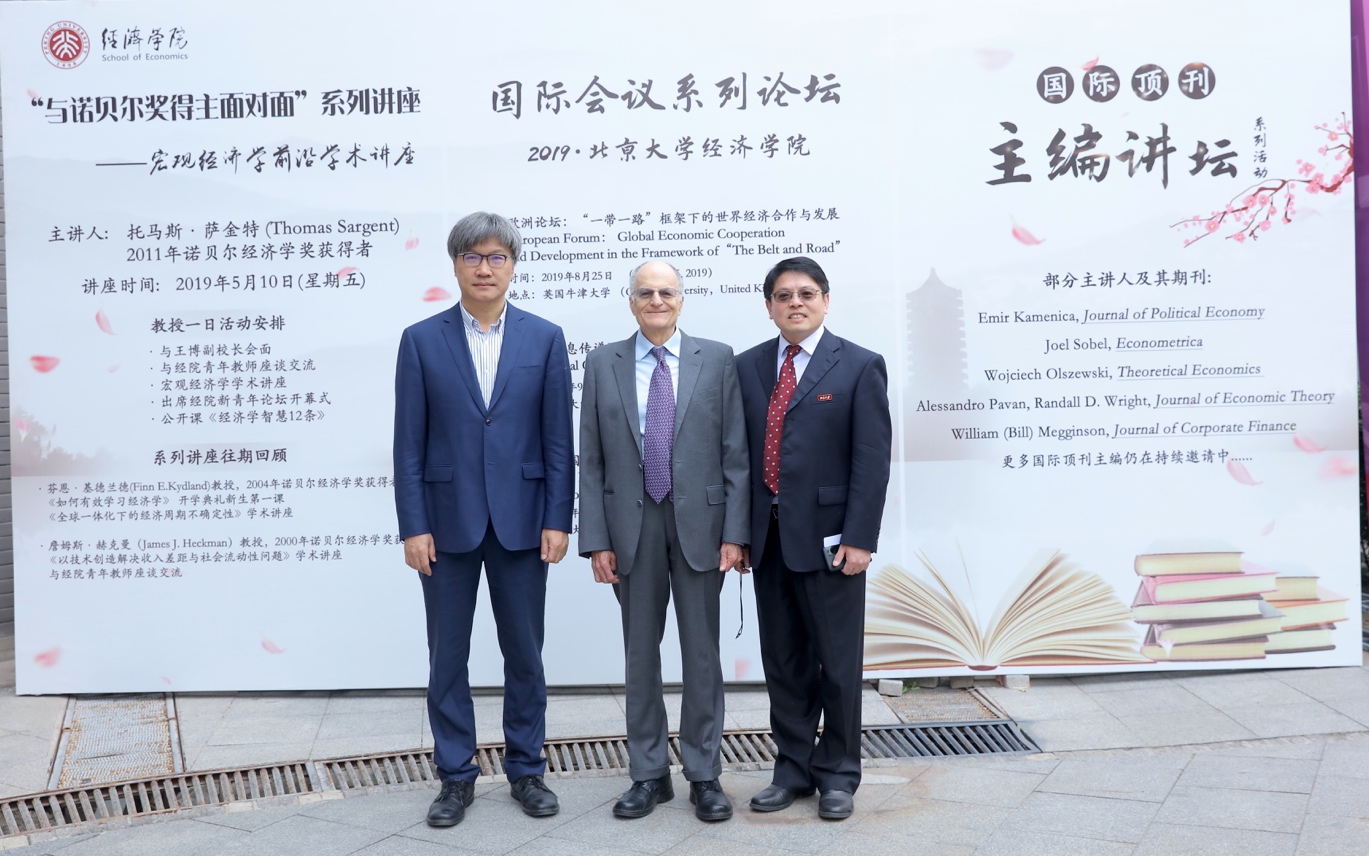
Professor Wang Bo, Professor Sargent and Professor Dong Zhiyong
Later, Professor Wang and Professor Dong Zhiyong, Dean of SEPKU, presented Professor Sargent with a certificate and souvenirs. Secretary of the SEPKU Council, Cui Jianhua, Associate Dean of SEPKU, Zhang Hui, Zhang Yaguang, Suo Lingyan, and Qin Xuezheng, Deputy Secretary of the SEPKU Council, Song Fangxiu, and Wang Yiran participated in the ceremony and had a group photo with Sargent.
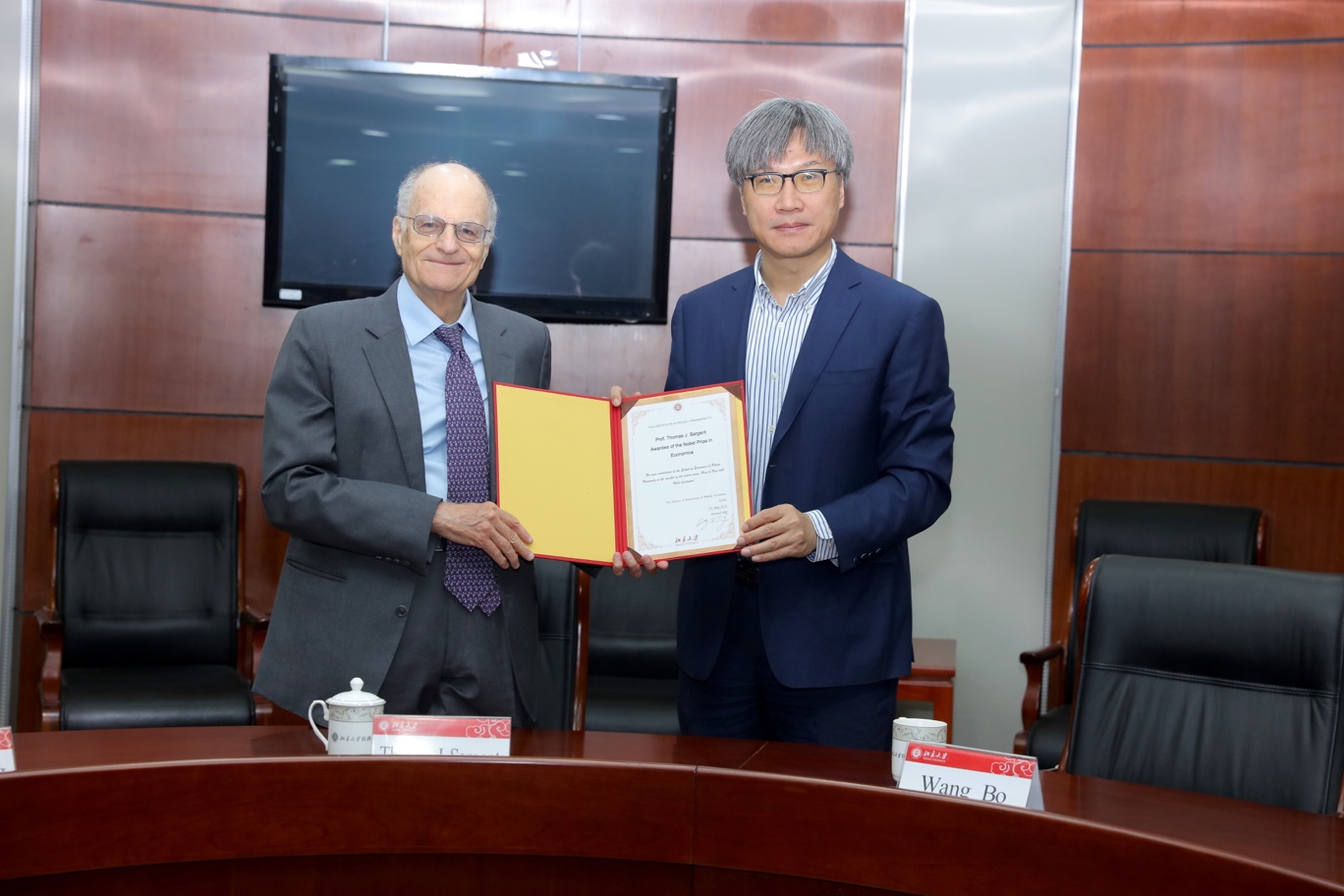
Professor Wang Bo presenting Professor Sargent with the certificate
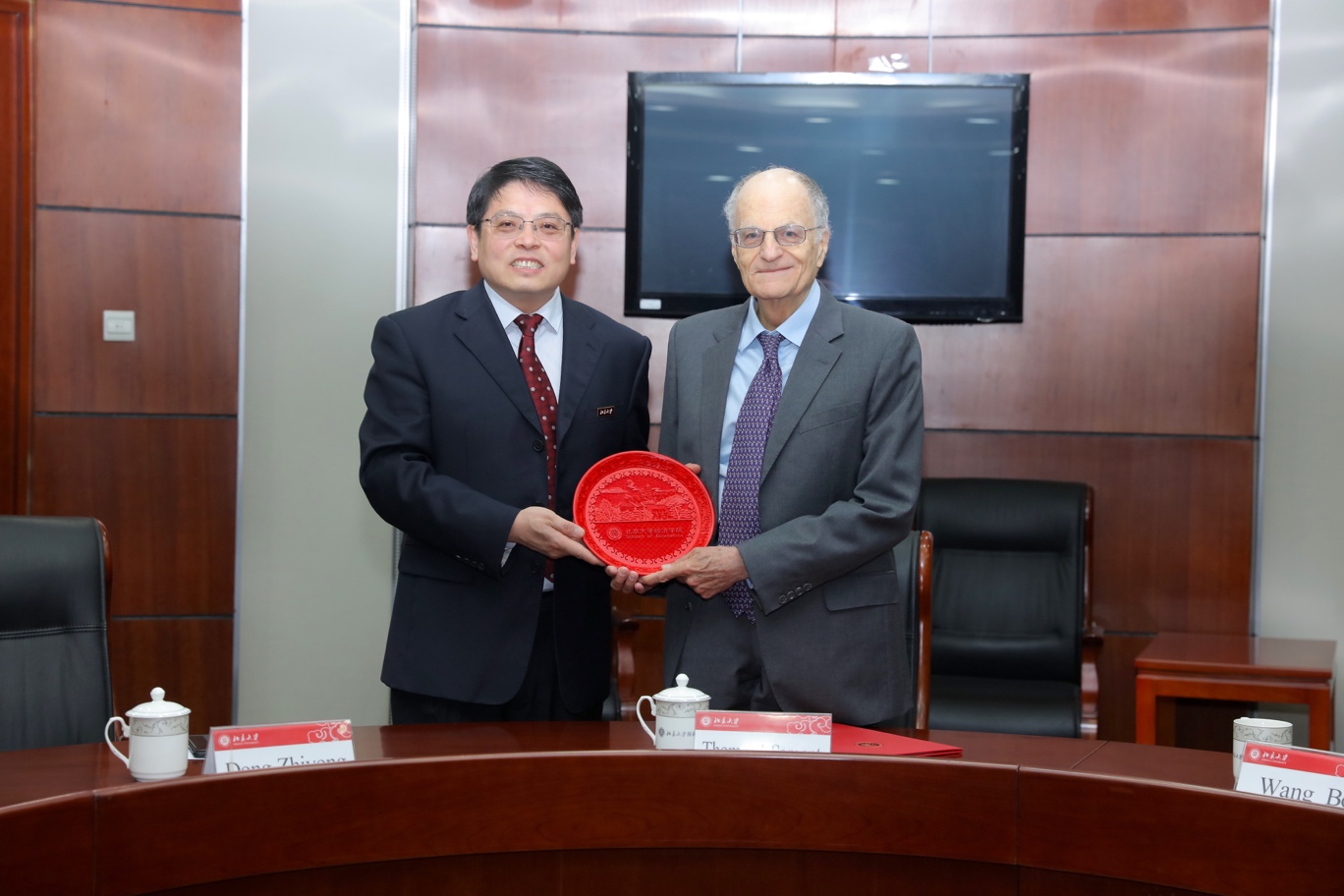
Professor Dong Zhiyong presenting Professor Sargent with the souvenir
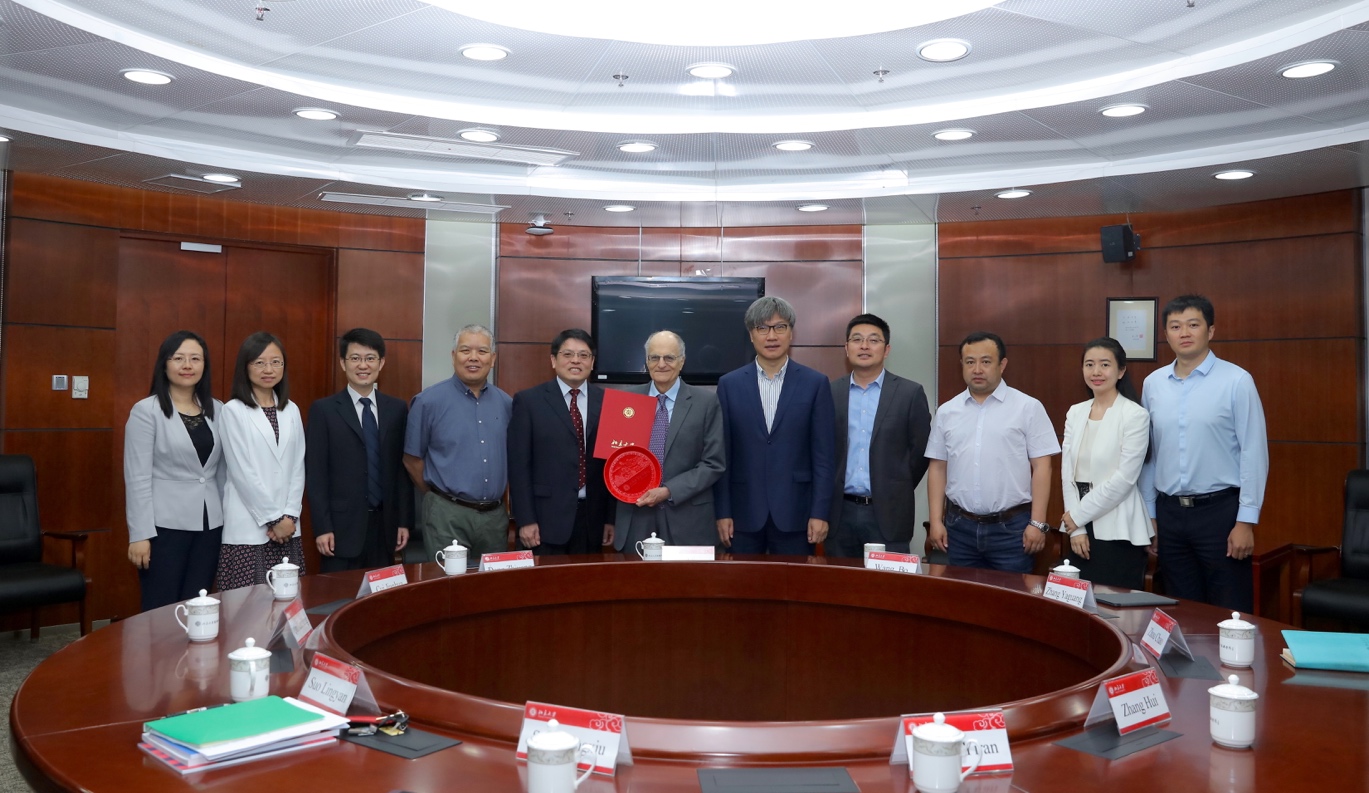
Group photo I
Subsequently, a seminar was held among Professor Sargent and young teacher representatives of SEPKU. Shi Ju, Liu Chong, Jia Ruo, Li Bo, Han Han, Wang Xi, Wu Zenan, Hao Yu, and Wang Yaojing participated in the seminar. They discussed with Sargent their personal experiences, research orientations and latest projects. Sargent then expressed his views on machine learning, monetary economics, Chinese economic history, and labor economics. After the seminar, all attendees took a group photo.
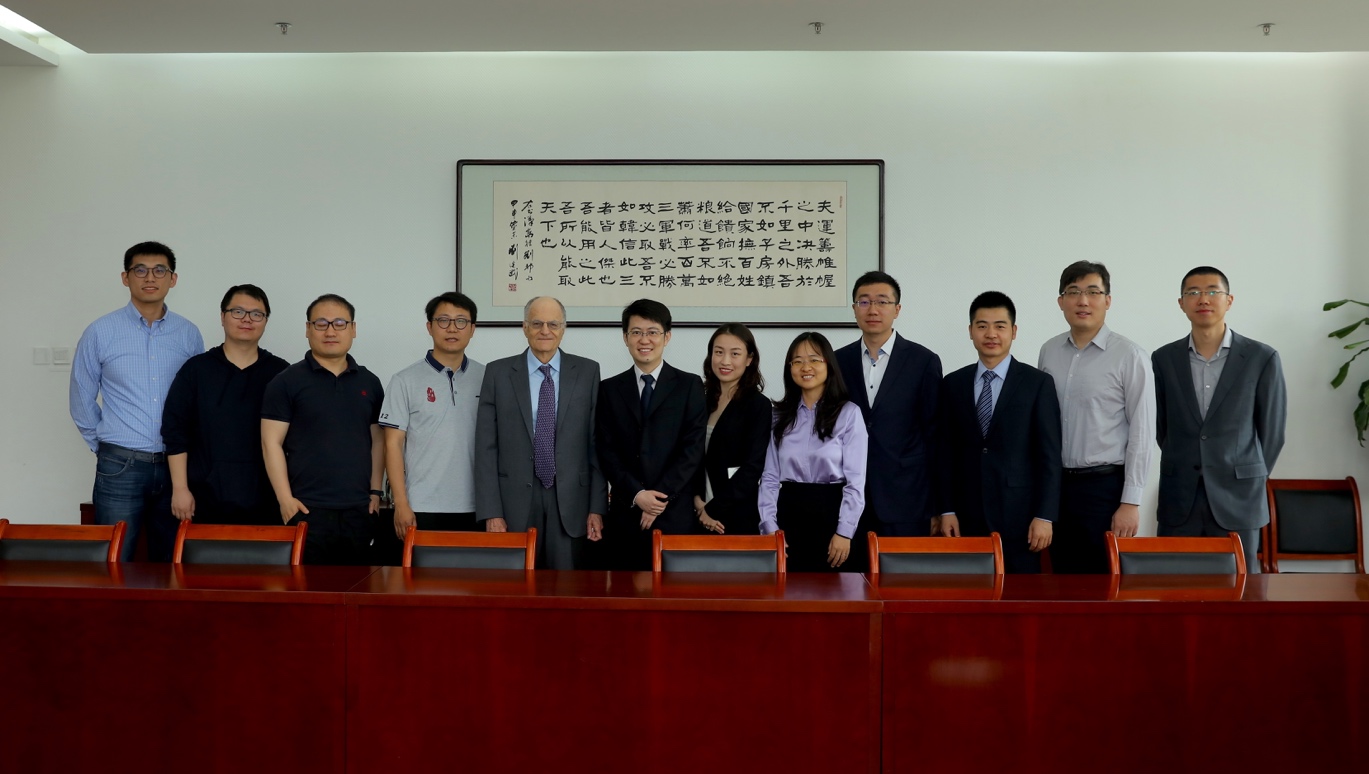
Group photo II
Then, Professor Sargent gave a lecture entitled “Risk, Uncertainty, Value, and Public Policy” at the Lecture Hall of SEPKU at 9:30. The lecture was chaired by Professor Qin Xuezheng, Deputy Dean of School of Economics.
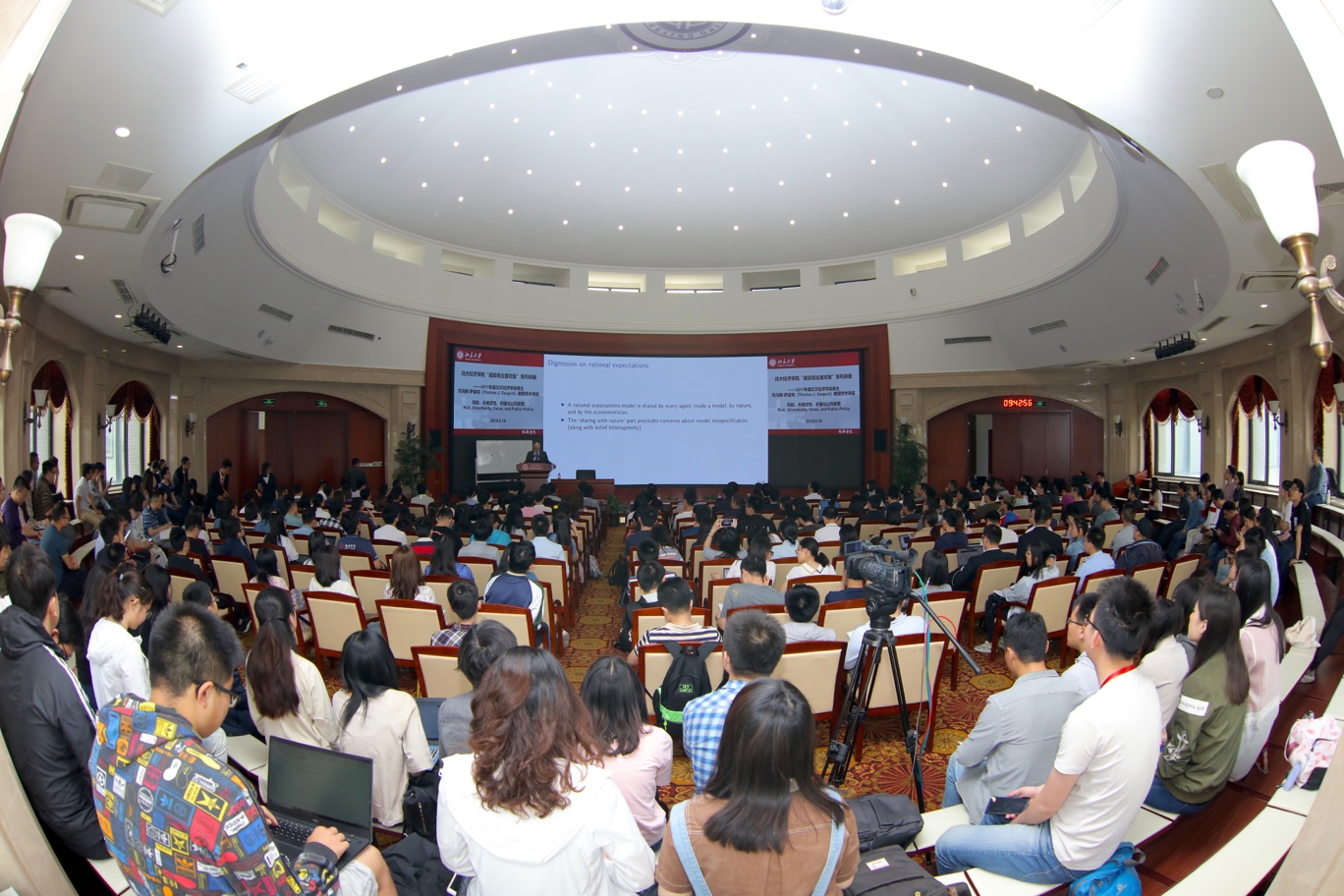
The lecture
In his keynote speech, Professor Sargent gave an introduction of uncertainty with respect to its definition, measurement, and influence on equilibrium concepts. To begin, he pointed out models in macroeconomics are based on the probability distribution of random variable sequences of parameter vectors, thus bringing uncertainty to model misspecification. Two distinct reasons, as he proposed, that Ellsberg experiments make Savage axioms dubious and that it is difficult statistically to distinguish alternative models from samples of the sizes of typical macroeconomic data sets, result in concerns about model misspecification. Then, he stated that relative entropy, a statistical measurement of a discrepancy, can calculate the boundary of value functions by maximizing or minimizing the expected utility function. At last, he mentioned that an increase in model uncertainty operates like an increase in the discount factor so that there is a form of precautionary saving under model uncertainty. Since portfolio holders’ worst-case beliefs affect state contingent prices, model uncertainty causes increasing volatility of stochastic discount factor as to the effect on equilibrium price. During the question-and-answer session, Professor Sargent shared his own experiences in education and research and the meaning of economic studies with the students.
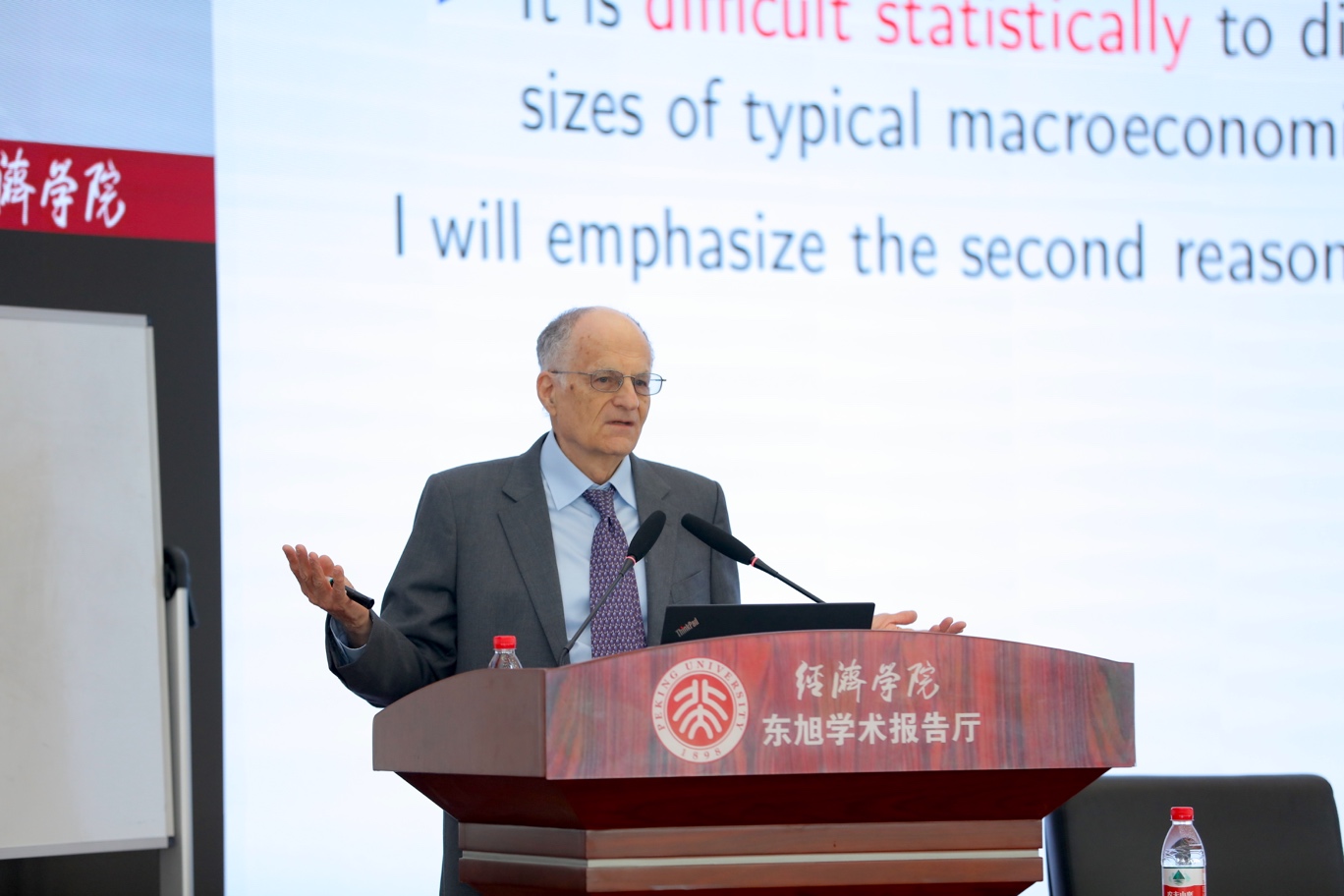
Professor Sargent giving a lecture
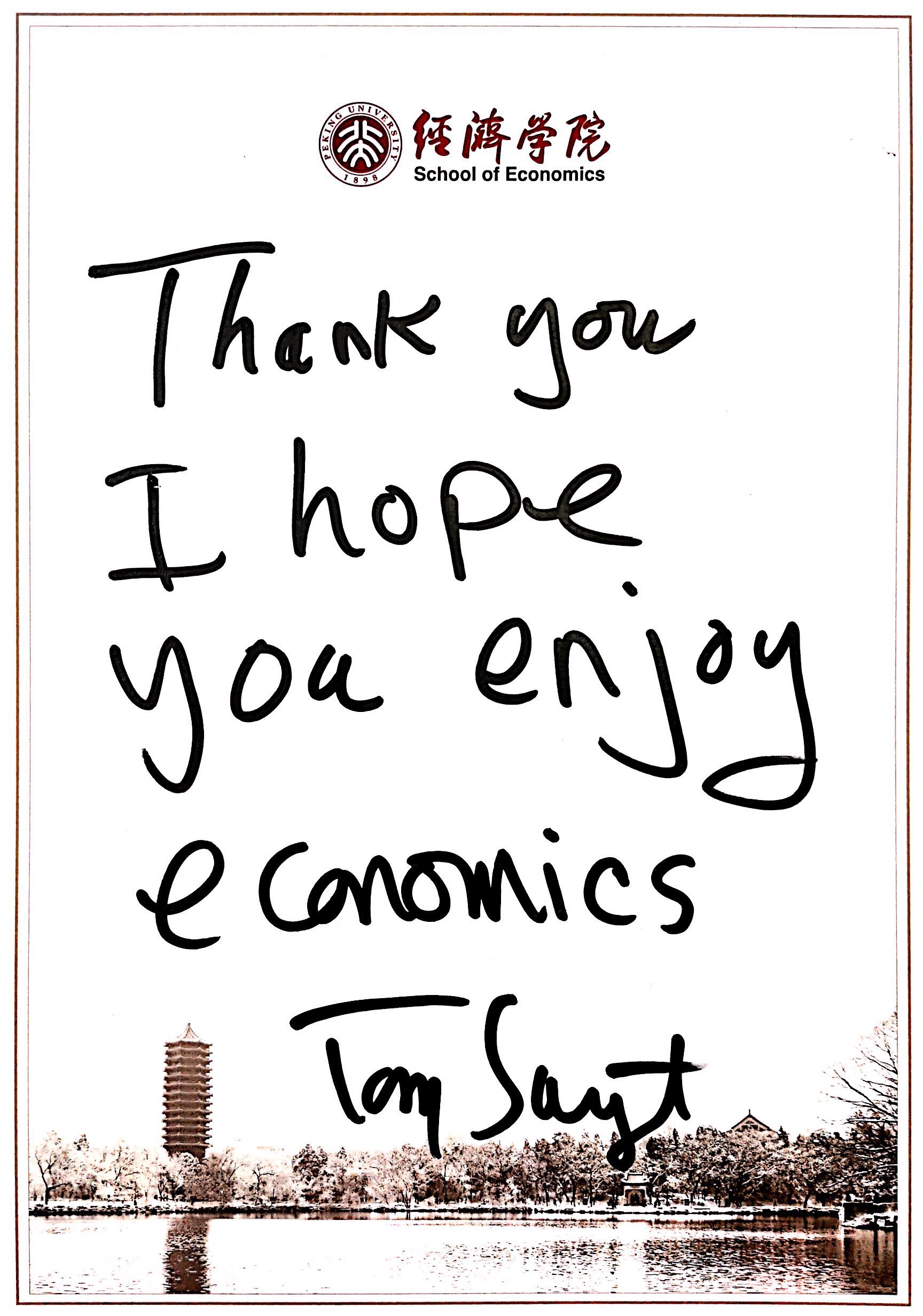
Message from Professor Sargent
In the afternoon, Professor Sargent attended the opening ceremony of the eighth “New Era China Youth Economic Forum”as the special guest and gave a speech on “US Tariff and Trade Policies: Then and Now”. In his statements, historical experience serves as an effective tool to face the future. Prof. Sargent affirmed his appreciation of free and equal trade policy, agreeing with the trade policy China has adopted since reform and opening-up. From his perspective, current American policies in trade protection would do harm to most Americans and trigger unexpected negative impacts. In addition, the employment issue in the United States cannot be solved by protecting low-skilled domestic labor, as unemployment should be ascribed to technological improvement. After the report, Sargent answered students’ questions in detail regarding trade balance and trade deficits.
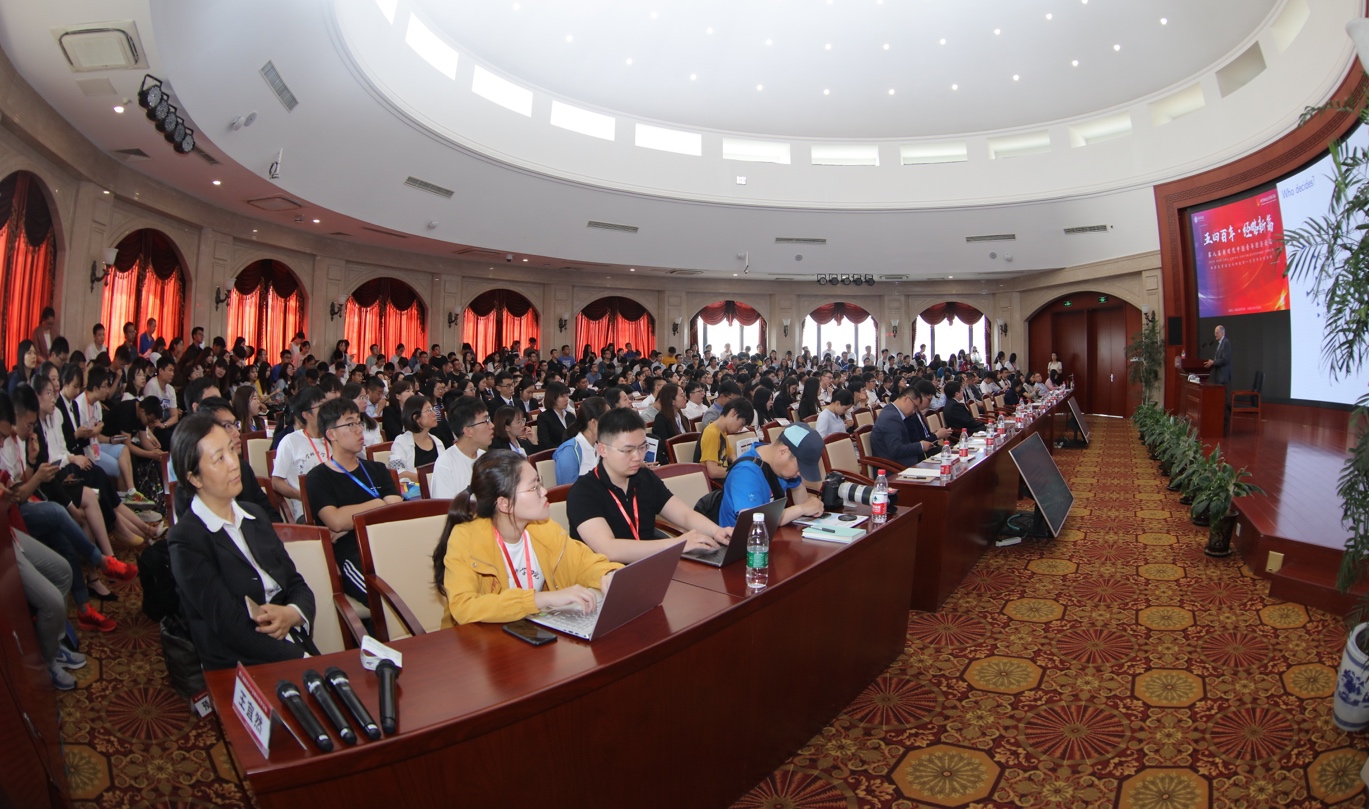
The eighth “New Era China Youth Economic Forum”